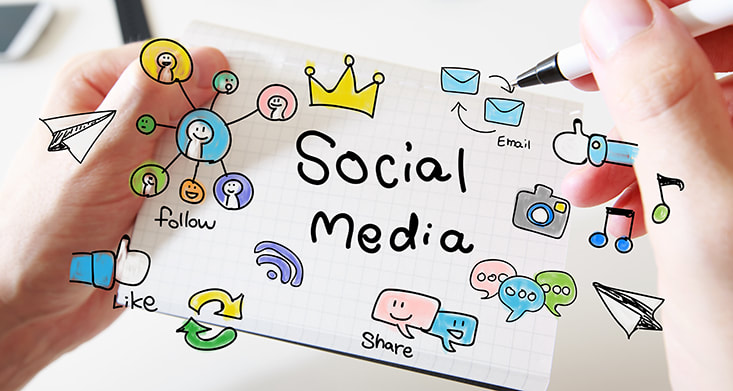|
It’s one of the most common questions in online marketing: Which social media platforms should I use? It doesn’t matter what industry you work in, social media marketing can help promote your company. After all, that's where your customers are probably spending a bunch of their time – pretty much every type of customer uses some sort of social. Whether they're looking at photos of your work or reading comments and reviews from other customers, this is the place to interact on a human level. But while it’s a good idea to maintain a presence on most social media platforms, pretty soon you’ll realise that you’re investing a lot more time on one in particular. And that’s for a very good reason: it will be where your customers are.
Use Facebook… If you’re any type of B2C business If you’re a B2C business, then Facebook is ideal – not least because there’s about 6 zillion users on there, just waiting to be engaged by your content. The wonderful thing about Facebook is how flexible it is. So, whether you want to share visuals, interesting articles, upcoming events or just repost your business blogs, Facebook is cool with that (and so are the users). Another great aspect is that you can list all your vital info on there, such as opening times, telephone number and website. You know, the stuff people are going to want to know about. And it’s also pretty easy to offer additional customer support, responding to messages or comments. Use Twitter… If your business wants a conversation with customers It’s all about conversations over on Twitter. And every company wants to communicate with their customers, right? Which means whatever business you run, you should keep your Twitter channel open – although B2C companies, or those trying to engage professionals on a more personal level, are way more likely to see success here. Twitter is all about keeping it short and sharp (even with the extended 240-character limit). So, if your business content can’t engage in a micro-second, this isn’t the platform best-suited to your needs. On the other hand, that quick Twitter-cycle is ideal for spreading good news quickly (‘We’ve opened a new office in London!’), sharing photographs of your team (‘Meet our awesome accounts department’) or newsjacking the latest headlines to show off your knowledge (‘Why we don’t agree that plants are plotting world domination’). Twitter’s a great place to show off a little more brand personality, while staying close to customers. And, like Facebook, it’s a good place to offer extra support for your customers – when i struggled to track a parcel down recently, it turned out the Twitter support team had the best information. Use LinkedIn… If you’re a B2B company LinkedIn is built for B2B. It’s the home of professionals, so if that’s your target market, LinkedIn is where you’ll want focus your energies. Unlike Twitter and Facebook, LinkedIn isn’t so focused on visual shares. The folks there are much more interested in hearing real-world success stories, advice on overcoming challenges, and tips for succeeding. So, if you can serve up actionable, industry-specific tips that a) actually help people rather than simply promote your business, b) showcase your authority in a particular area and c) show clients how your products and services can help, then you’re on to a winner. Of course, it’s worth having a dedicated LinkedIn page, whatever your business, since it helps legitimise your company in the minds of potential clients and customers – but if you’re not trying to attract and engage professionals, then it’s never going to be your go-to platform. Use Instagram and YouTube… If you offer visual services and products If your product or service has any visual element at all, you need to get on Instagram. Food, fashion and lifestyle brands are a fab match for this platform. But so long as you can provide truly engaging visual content, it’s worth getting on there. Think of Instagram as your online gallery; a portfolio that people can see and share. And, more importantly, highlights your abilities and quality as a business – whether it’s a dazzling swimming pool installation or a quirky crocheted toy of Dr. Who. The same goes for YouTube, although you’ll be focusing on videos instead of images there. However, unlike Instagram, YouTube is also a perfect information tool for businesses. That means, if you work in an industry that could be confusing to your customers – for instance, technology – you can upload how-to’s, help guides and explainer videos, as well showcasing your awesome work. And that really helps with boosting your industry leadership. So, the only question for your company now is, which social media platform will you choose? At Little Lemon Marketing, we're here to support you on your chosen social media platforms. If you don't have the time or knowledge, we can manage your account with daily posts, engaging with prospective clients, answering enquiries and just ensuring you're as visible as you can be. Packages start from just £20.00 per week too! Comments are closed.
|
AuthorOur weekly dose of all things Marketing! ArchivesCategories
All
|

 RSS Feed
RSS Feed